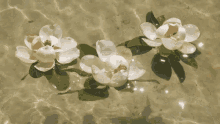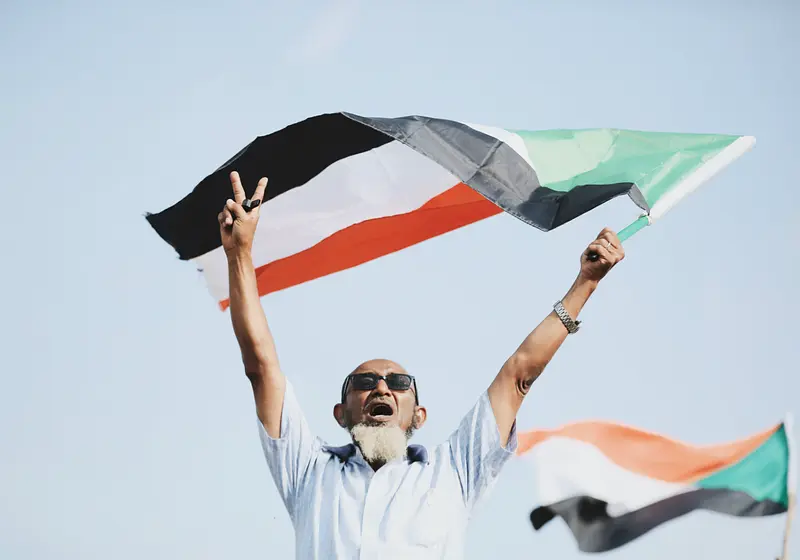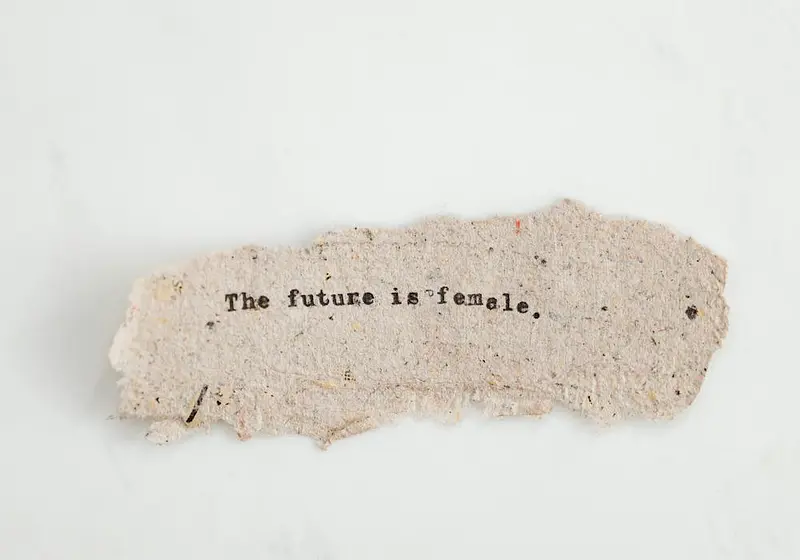The Sudanese Revolution, starting on the 19th December 2018 and continuing for several months onwards was a major shift in power and political control in Sudan. Beginning with civilian protests nation-wide, triggered by rising prices in bread and fuel, the Uprising managed to end the thirty-year-rule of long-reigning President Omar al-Bashir in a successful coup d’état.
However, following al-Bashir’s removal, over 100 people were ruthlessly massacred with several injured and raped by the Transitional Military Council (TMC) forces, established directly after the coup d’état occurred. Calls to end their rule culminated in a deal between civilian protesters and the TMC, with a shared power being held until the end of a 39-month transitional period.
The fight for democracy and against the repeated human rights violations in Sudan is one that has been a relentless struggle for the millions of individuals affected by government rule. Strict laws established capitalised on misogynistic practices, amongst other heinous forms of discrimination, under the guise of ‘religious’ necessity.
Over the years, there has been a clear dichotomy created between the desire for power and a focus on what will benefit the community. [censored], carried out through heavy ethnic cleansing in Darfur under al-Bashir’s rule is only one of countless examples of the callous oppression of civilians, and the damaging effects of abusive leadership.
Over a year on from the June 3rd Massacre, the Millions March, in which civilians took to the streets across a plethora of countries, amongst other milestones, it is clear that community can bring change. Undeniably, however, this is not the end – and it won’t be for a long time. But we commemorate those who bravely gave their lives for the cause and remember their altruistic efforts.
As a Sudanese woman, remembering this time is one that revolves around a sense of pride and deep sorrow. Pride in my people and my origins, proud in what we represent – a determination and resilience beyond anything I have seen before, a true desire for justice regardless of all that Sudan has suffered.
One of the biggest sources of my pride is the impactful nature of the women who led the protests in an immense show of power. The patriarchal society that is Sudan is largely marred by sexism and a clear fissure in the opportunities given to girls across the nation. To be subjugated time and time again and rise above those notions is something that is truly admirable to me, as someone who has infinitely more to be grateful for than I often recognise.
Sudanese women are not just the sexist stereotypes that society has created of them, and in remembering this time, it is important to understand the role that they have played in bringing true change to our country. #HeForShe is a mission that is wholly important in achieving this – beyond recognising the pivotal role of women, Sudan must bring women to the forefront of discussions about its future. The appointment of Nemat Abdullah Khair as the Chief Justice of Sudan in October 2019 and the position of two women in Sudan’s Sovereign Council proves its possibility; but to reiterate, this is not the end.
Let us slide into your dms 🥰
Get notified of top trending articles like this one every week! (we won't spam you)Key Women in the Protests
One of the women who stood out to me and many others was Alaa Salah, a Sudanese student and anti-government protester. The ‘woman in white’, as several dubbed her, stood amongst thousands of protesters dressed in the traditional thawb worn by women in Sudan, a striking symbol of the revolution.
She chanted in a call-and-response manner to protesters, who responded with the phrase “thawra”, defined as ‘revolution’. With about 70% of the protesters and organisers of such protests in the Revolution being women, the iconic picture of her remains an important reminder of how imperative the female voice is within political discussions.
In a speech given at the meeting of the United Nations Security Council (UNSC) in October 2019, Salah stated:
“After decades of struggle and all that we risked to peacefully end Bashir's dictatorship—gender inequality is not and will never be acceptable to the women and girls of Sudan. I hope it is equally unacceptable to the members of this Chamber.”
And her words must be recognised.
Amidst the protests, women in Sudan catalysed the end to a discriminatory law known as the ‘Public Order Law’, permitting police to flog women for wearing trousers and governing the extent of their presence in public spaces. They are a clear force for change, and the corrupt nature of these laws is proof of why this change is necessary.
From the perspective of someone living in the West, it is almost impossible to see the convergence of our cultures. I often feel far removed from discussions about Sudan, due to the disparities between its society and the one I currently occupy.
Sudan is my culture, my origin – before anything, I am Sudanese. But I have learned that it is not just enough to claim my heritage. I must actively act and exercise my privilege to have a voice in order to ensure that this heritage isn't damaged, which is something Sudan’s women have taught me.
They are more than just a picture, more than just a symbol; they are the manifestation of justice and defiance and challenging history. Day by day, they redefine that which they have been subjected to, with their impact sure to be seen for generations to come. Student protesters in Sudan are often called 'Kandakat', after Nubian Queens. Time and time again, they remind me why.
And Alaa is only one of the many inspirational women that must be celebrated.
There is Ahlam Khidir, the ‘Mother of Martyrs’ whose son was killed in a 2013 protest; she personifies the collective grief felt by the Sudanese nation. Her struggle against the tyranny that befell her family is one that can be summed up in her very own words – “as soon as my son’s coffin left, I announced total rebellion” – years of standing up, years of rejecting the crooked regime that stole her son from her.
"As my son's coffin left, I vowed total rebellion." Ahlam Khidir's son was killed in a peaceful anti-government protest in Sudan in 2013 - but that didn't stop her from becoming a prominent protester herself. Ahlam is one of this year's #100women.@BBC100women | #Sudanuprising pic.twitter.com/8JTGC02HJI
— BBC News Africa (@BBCAfrica) <a href="https://twitter.com/BBCAfrica/status/1187768376640376833?refsrc=twsrc%5Etfw">October 25, 2019
There is Wala’a Essam al-Boushi, the current Minister of Youth & Sport in the cabinet of Prime Minister Abdalla Hamdok – one of many firsts in terms of female leadership.
And there have been many more women before the Uprising, as there will continue to be after; Nahid Toubia, the late Suad Ibrahim Ahmed and Hawa Abdallah Mohammed Salih, to name a few. These are activists who actively rejected gender norms and practices such as the horrific FGM, recently criminalised in Sudan.
The Sudanese Women’s Union, formed in 1952, is a symbol of how the struggle for women’s rights has been generational; the end of an oppressive regime has been a necessity for a truly long time.

Take the Quiz: Which Squid Game Player Are You?
Ever wondered which player you’d be if you found yourself in the Squid Game universe? Take this quiz to find out which character matches your perso...
Why is the Role of Women So Important?
Sudanese women showed the world that even in struggle and strife, change is possible. Garnering power is possible. Defiance and strength amidst this struggle is possible.
Having their voices amplified is only the first step; while female representation in the Cabinet is there, it is nowhere near enough, and this must be considered in the future. Due to the highly misogynistic laws that are currently being dismantled and outlawed, it is clear that the female voice needs to be present to ensure that a repetition of the actions of past regimes does not occur.
The activists that I have named are not and have never been the exception. Being shadowed and rejected is the tool of the opposition to suppress these women, and they have shown an ability to rise up, nonetheless. Celebration of these women is, of course, important, but performative actions are never the endpoint.
The next step must be ensuring their access to education, and that they are present in the discourse regarding politics. Change seems far away, but if there's anything that the people and women of Sudan have proven, is that it can happen.
Here’s to the brave women of Sudan.


















